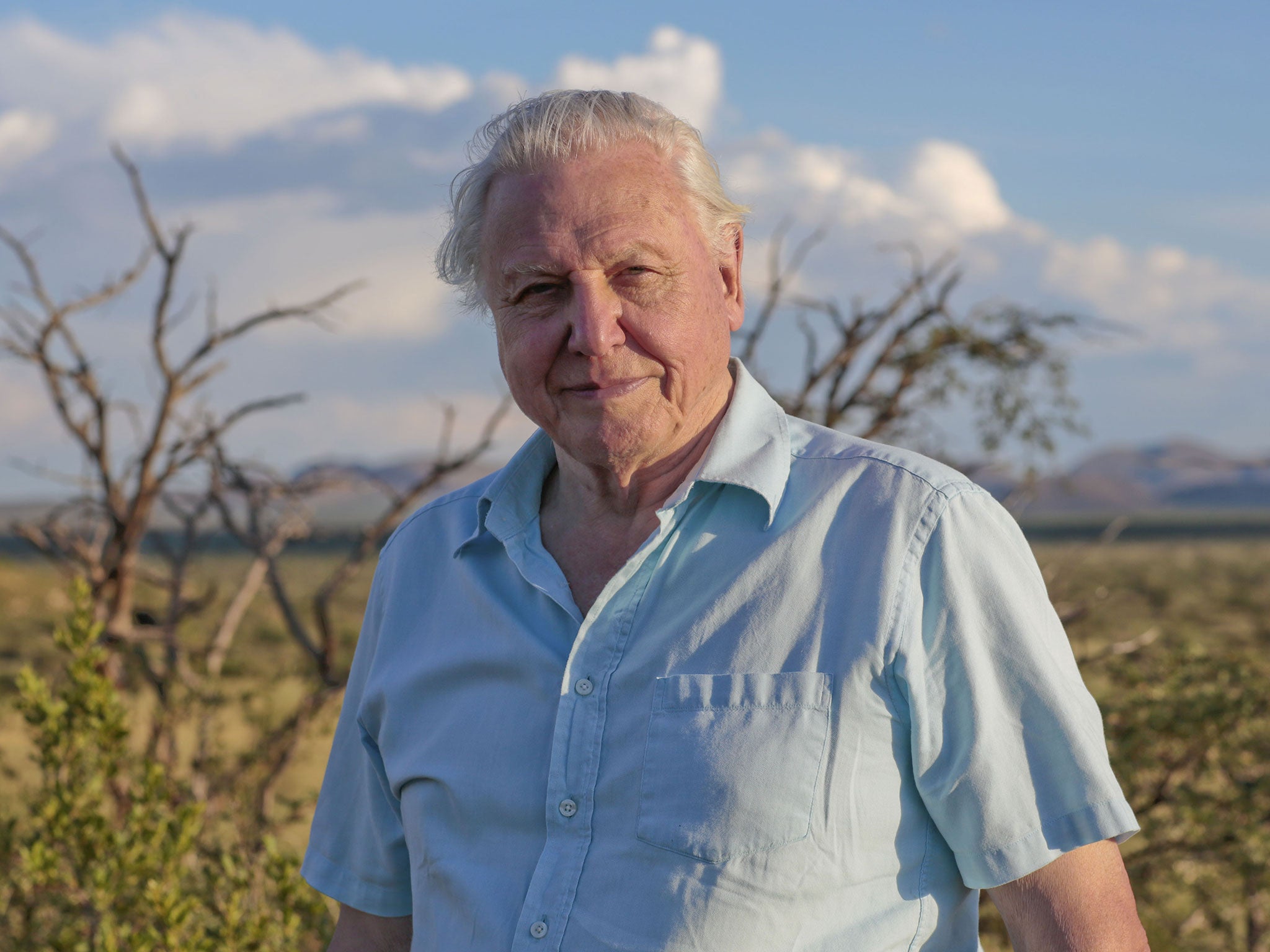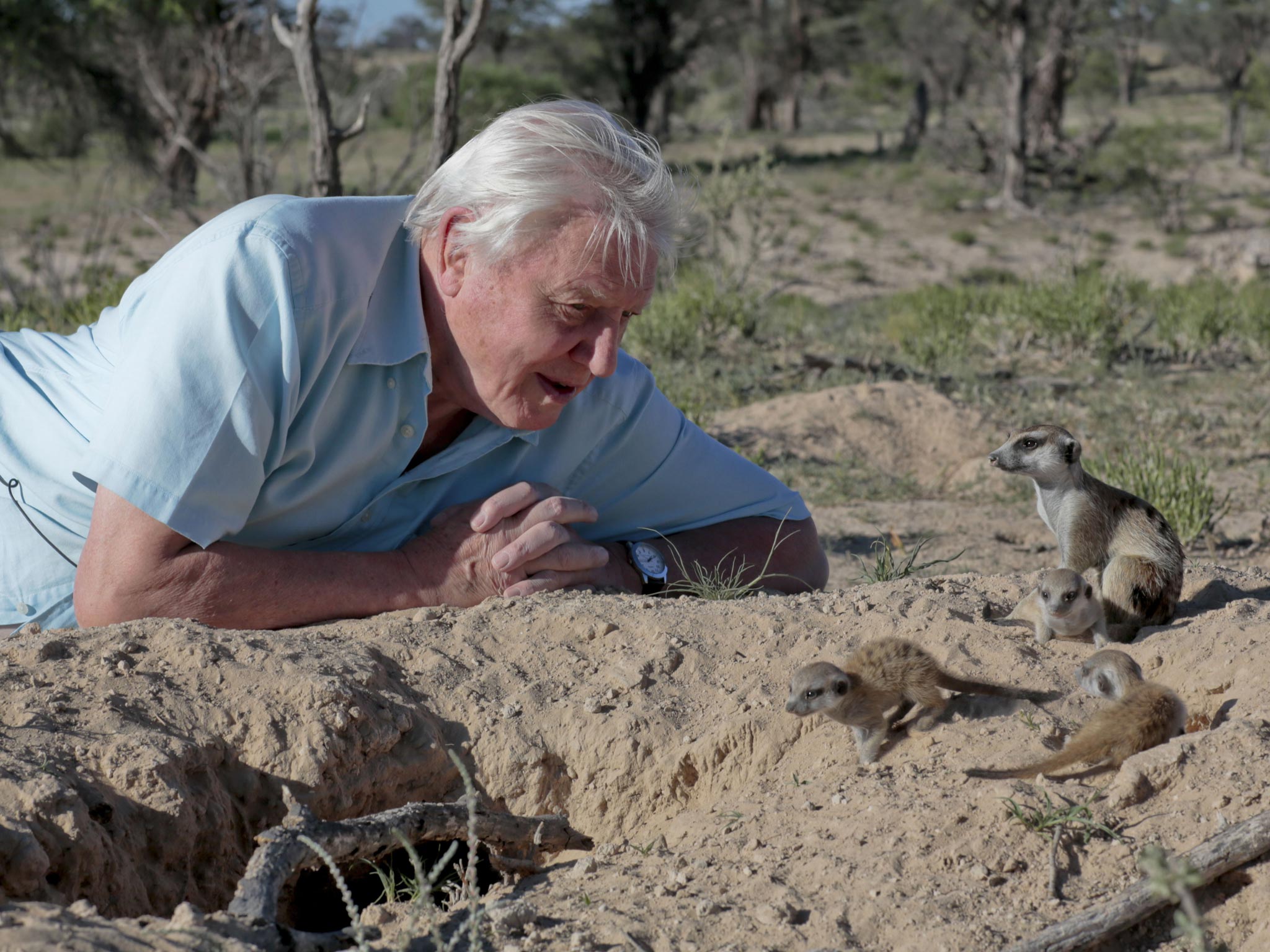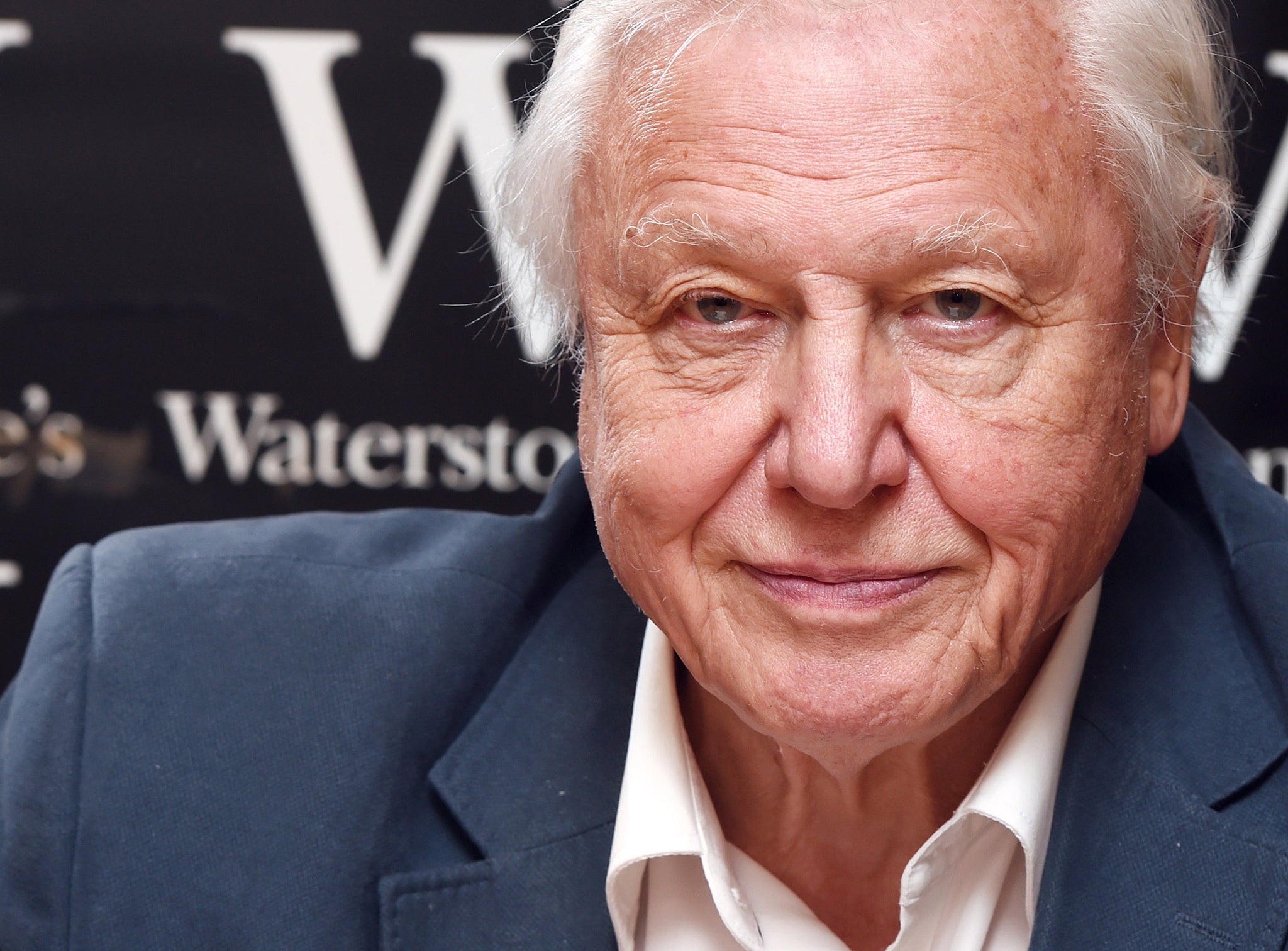Sir David Attenborough interview: The one question about life that still baffles him
Speaking at the launch of his new series Natural Curiosities at London Zoo, the broadcaster is lost for words. Almost.

Your support helps us to tell the story
From reproductive rights to climate change to Big Tech, The Independent is on the ground when the story is developing. Whether it's investigating the financials of Elon Musk's pro-Trump PAC or producing our latest documentary, 'The A Word', which shines a light on the American women fighting for reproductive rights, we know how important it is to parse out the facts from the messaging.
At such a critical moment in US history, we need reporters on the ground. Your donation allows us to keep sending journalists to speak to both sides of the story.
The Independent is trusted by Americans across the entire political spectrum. And unlike many other quality news outlets, we choose not to lock Americans out of our reporting and analysis with paywalls. We believe quality journalism should be available to everyone, paid for by those who can afford it.
Your support makes all the difference.“I think the most alarming animals I have encountered are really poisonous snakes,” Sir David Attenborough says, his gaze fixed on an imaginary point somewhere on the ceiling. His arm forms the body of an upright snake; his hand its snapping mouth.
“I’ve never actually met one in the wild, but I have seen a king cobra. They go towards people, they rear up six feet tall and they’re very aggressive and they are very fast. And one bite means certain death. So if I encountered a king cobra in the wild I would be very alarmed.”
“The nature of human beings is that they’d far rather face the disaster that is happening tonight than the one that is happening tomorrow,” he continues on the political apathy towards climate change – the biggest threat facing the existence of humanity – compared to the boundless enthusiasm world leaders have shown in tackling religious extremism. This time, he stares straight ahead. His voice is low and familiar.

“Climate change will affect the whole of humanity, while terrorist attacks will only affect a small section of humanity. Of course, you wouldn’t say that if you were related to someone who had been beheaded or blown up or murdered. But humanity is facing a very big, slow, long, drawn-out threat, and that is to do with the way the weather is changing and the size of the population.”
He’s even got an answer for how to ethically slow population growth in developing countries that, while he wouldn’t consider himself among them (“I’m a humanist. I’m neither one side nor the other”), would see most feminists applaud him.
“You’ll discover in countries where women have control over their own bodies, where they have education, where they have birth control, where they have facilities and where they are literate, when those things happen, the birth rate falls,” he says. “Always. Always.”
For the most part, it seems as though Sir David – a man who has studied life in all its various forms for over 70 years – has a carefully considered response to everything. But there is one question that leaves him utterly baffled.
What on earth is happiness and how does one achieve it?
“Well I suppose happiness is something one enjoys, but that’s… Not what you mean…” he starts, furrowing his brow in concentration. His eyes are reaching for an explanation.
“The process of getting better,” he considers. “Happiness is very difficult to…”
Silence.
“I suspect that happiness is not a state but rather a transition…”
Another pause.
“If things are getting better, and circumstances,” he tries again. “You’ll find people where their conditions aren’t changing in any way, its rather rare for them to be happy.”
“And you get that bubbling happiness when you achieve things…” he says, tailing off into thought.
“Self improvement, yes,” he clarifies. “No… Many things.”
And there is, of course, the one question he refuses point blank to answer. Find out what it is in the interview below.

Independent: The technological advancements that have allowed us to explore some of the world’s most fascinating creatures, as you do in your new series Natural Curiosities, have been vast over the course of your career. But is there anything we used to do simpler and better?
Sir David Attenborough: “No I don’t think so. You wouldn’t say, ‘Would you not prefer for us not to be able to see clearer?’ No. All the modern devices we have enable us to investigate things and have enabled us to do better.”
The Doomsday clock is closer to midnight now than it has ever been. Climate change has played a large part in that. In terms of our health, safety and quality of life, should we be more concerned about our deteriorating environment than we are about the threat of terror attacks?
DA: “Oh yes, yes. Climate change will affect the whole of humanity, while terrorist attacks will only affect a small section of humanity. Of course you wouldn’t say that if you were related to someone who had been beheaded or blown up or murdered. But humanity is facing a very big, slow, long, drawn-out threat, and that is to do with the way the weather is changing and the size of the population.”
In that sense, how do you feel about the political apathy towards the issue of climate change as opposed to the zeal world leaders are showing to tackling the issue of religious extremism?
DA: “Terrorism is an immediate problem that people are very concerned about, and I am as concerned about that as anyone else. But it isn’t an either or situation. And who knows when or if either can be solved? How are they going to get rid of terrorism? And the nature of human beings is that they’d far rather face the disaster that is happening tonight than the one that is happening tomorrow.”
You’ve said that a lot of the problems facing humanity could be solved if there were fewer of us…
DA: “The only acceptable way is if you can persuade people to have fewer children. In the Victorian times, there were families of 15 children. Someone like Edward Lear, he was the last of 21 children. And so what we have to think about is offering people the alternative choice. And in the West, that’s what’s happening. The birth rate has been dropping steadily and still is. But there is still a vast amount of the world where that’s not the case. And that is where the big population growth is taking place.”
How would you suggest population growth is slowed ethically in developing countries?
DA: “You’ll discover in countries where women have control over their own bodies, where they have education, where they have birth control, where they have facilities and where they are literate, when those things happen, the birth rate falls. Always. Always.”
Would you consider yourself a feminist in that respect?
DA: “No, not a feminist. I’m a humanist. I’m neither one side nor the other. It’s about the human being. And wanting human beings to be better off so they don’t view children as an insurance for the future.”
What does happiness mean to you? Is life enough?
DA: “Well I suppose happiness is something one enjoys, but that’s not what you mean… The process of getting better. Happiness is very difficult to… I suspect that happiness is not a state but rather a transition. If things are getting better, and circumstances. You’ll find people where their conditions aren’t changing in any way, its rather rare for them to be happy. And you get that bubbling happiness when you achieve things. Self-improvement, yes. No. Many things.”
You’re frequently voted the most trust-worthy and honest face on television. But is there anything about you your fans would be surprised to know?
DA: “Ha! I’m not going to tell you. Why should I tell you how ghastly I am?”
You’ve said that out of all of the threatening animals you’ve come across in the wild, you were more scared of rats than most. Is that true?
DA: “I think the most alarming [animals] I have encountered are really poisonous snakes. I’ve never actually met one in the wild, but I have seen a king cobra. They go towards people, they rear up six feet tall and they’re very aggressive and they are very fast. And one bite means certain death. So if I encountered a king cobra in the wild I would be very alarmed.”
What’s the one place you’d love to explore that you haven’t had a chance to yet?
DA: “I would love to go and see the Himalayan Mountain Kingdoms. There are very few left now. I would loved to have gone to Tibet and Nepal. And there are still parts of central Asia that are utterly unexplored.”
In terms of living creatures, is there any being you hope to encounter in the wild while you still can?
DA: “I would love to see a giant squid. Very few people have seen them. And only about half a dozen people have seen one alive.”
What could we all do today to make a collective difference towards reducing the advancement of climate change?
DA: “Fundamentally not to waste energy. If we were all to reduce our demands for energy, it would make an enormous amount of difference.”
David Attenborough’s Natural Curiosities, new and exclusive to Watch, Mondays at 9pm from 2nd February
Join our commenting forum
Join thought-provoking conversations, follow other Independent readers and see their replies
Comments